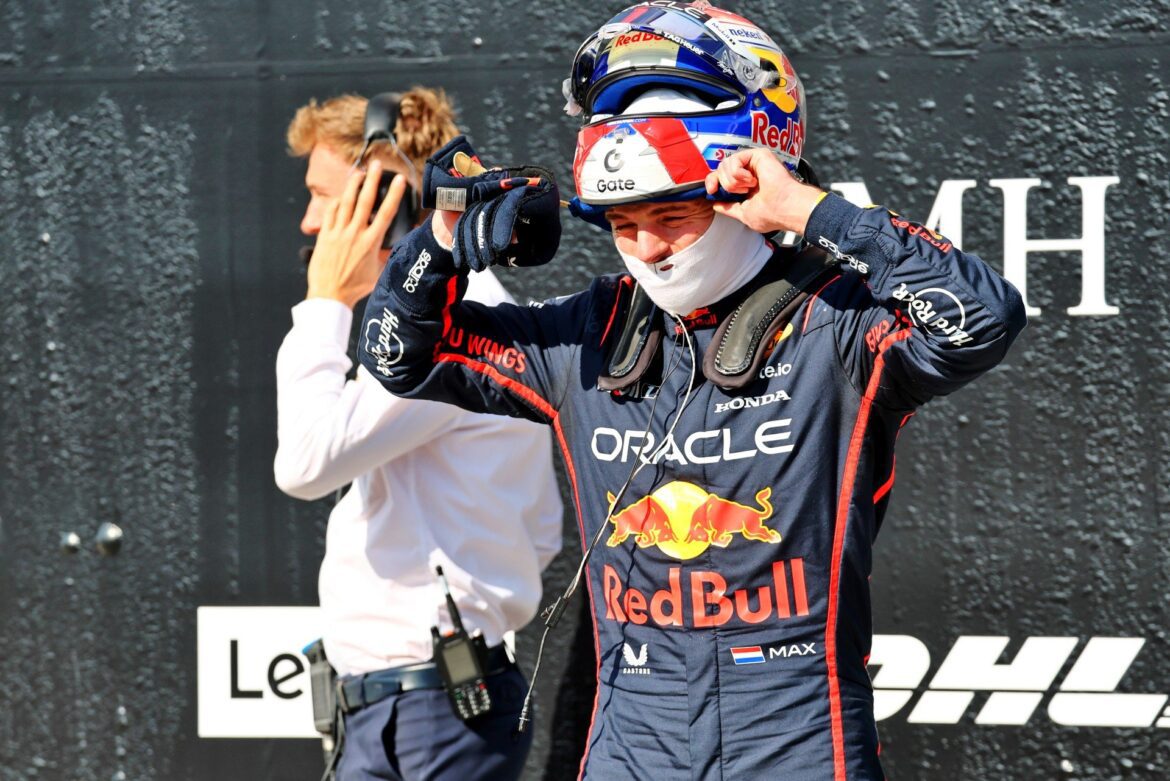Max Verstappen’s Reflections on the Canadian Grand Prix: Challenges and Insights
Max Verstappen, the reigning four-time Formula 1 champion, recently shared his insights following the Canadian Grand Prix, which took place on Sunday, June 15, in Montreal. The Red Bull Racing driver expressed his thoughts on the team’s performance during the race, highlighting several key challenges he faced, particularly concerning tire degradation and overall race strategy.
Performance Challenges During the Race
In his post-race interview, Verstappen was candid about the difficulties he encountered throughout the event. He emphasized that he never truly believed a victory was within reach for him and the team that day. “To be honest, I never thought winning was possible today,” he remarked, reflecting on the early stages of the race. The tire management issues he faced were significant, leading him to focus more on defending his position rather than challenging for the lead.
Verstappen explained that the degradation of his tires created a considerable struggle during the first two segments of the race. This situation forced him into a defensive driving style, as he had to fend off challenges from other drivers, including Kimi Antonelli, who nearly overtook him on two occasions. Despite these hurdles, he credited the strategic pit stops made by his team as a crucial factor that helped him maintain his position.
Strategic Decisions and Pit Stops
During the race, Verstappen’s team executed a strategy that involved multiple pit stops, which ultimately played a pivotal role in his performance. “The pit strategy saved us,” he noted, acknowledging the importance of timing and decision-making in a race where tire wear was a significant concern.
As the race progressed, Verstappen encountered additional challenges, particularly during his final pit stop. He admitted he was unsure whether he could finish the race competitively due to issues with his hard tires. “I didn’t know if I would make it to the end competitively because I was already having problems with the hard tire,” he explained. However, he recognized that a lighter fuel load towards the end of the race provided him with some advantage, allowing him to maintain his position.
Despite these advantages, Verstappen felt that he lacked the pace required to challenge George Russell for a higher position. “I spent the race more looking in the mirror than thinking about overtaking,” he said, highlighting the defensive nature of his driving throughout the event.
Reflections on Race Strategy and Team Performance
Verstappen’s reflections on the race showcased his analytical approach to racing. He acknowledged that he never felt he had the rhythm necessary to mount a serious challenge for the lead. Instead, his focus remained on maintaining his position and managing tire wear effectively. “It was more about looking in the mirror, trying to keep that gap, and taking care of my tires to avoid overloading them,” he remarked.
Despite the challenges he faced, Verstappen expressed satisfaction with how the Red Bull team managed the situation. “It wasn’t the easiest race, but I think as a team, we handled it well,” he concluded, demonstrating his ability to find positives even in a challenging race.
Championship Standings and Future Races
The second-place finish in Canada was significant for Verstappen, allowing him to close the gap to the McLaren drivers in the championship standings. Currently, Oscar Piastri leads the championship with 198 points, followed by Lando Norris with 176 points. Verstappen’s recent performance brought his total to 155 points, a crucial development as the season progresses.
Looking ahead, the next race on the Formula 1 calendar is the Austrian Grand Prix, scheduled for June 29. This event holds particular importance for Red Bull Racing, as it takes place in their home country, adding an extra layer of motivation for Verstappen and his team.
Conclusion
Max Verstappen’s analysis of the Canadian Grand Prix highlights the complexities of Formula 1 racing, where tire management and strategic decisions can significantly impact a driver’s performance. His ability to adapt to challenging conditions and maintain focus on his race strategy showcases his experience and determination as a top competitor in the sport. As the season continues, fans eagerly anticipate how Verstappen and the Red Bull team will approach their next challenge in Austria.
